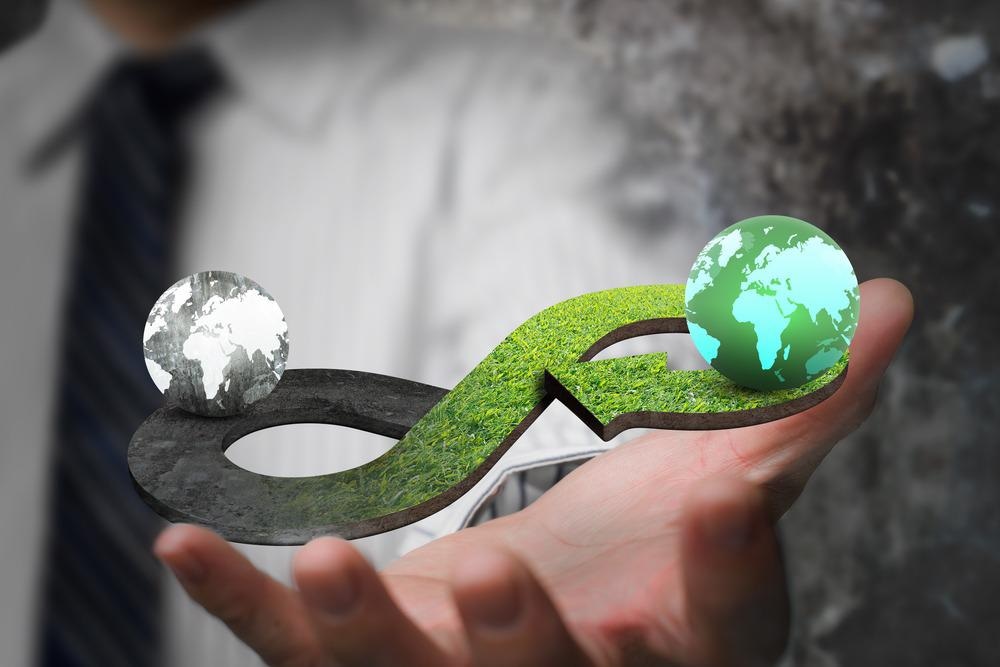An international team of researchers has published a study in Cleaner Engineering and Technology exploring the recent advances in achieving the circular economy and the progress in associated technological applications. Stressing the key role of an interdisciplinary, inter-linked, and international approach to solving the issues with sustainability, the authors have presented a comprehensive review of the field.

Study: Cleaner technologies for sustainable development. Image Credit: BsWei/Shutterstock.com
A Question of Sustainability
Current world events have demonstrated that anthropogenic climate change is a very real phenomenon, with wide-reaching implications for the future trajectory of modern industrialized societies. Population growth and the consequent rapid urbanization and industrialization have led to increased carbon emissions, waste, and pollution, and the problem is getting worse.
Whilst emissions dipped during the COVID-19 pandemic due to decreased commercial and industrial activity and energy demand, they quickly rebounded to their pre-pandemic levels, and the knock-on effect of sudden increased electrical demand was a 43% increase in coal-generated electricity. Whilst this was due to current coal generation capabilities and not the installation of new infrastructure, it is still a cause for concern.
Aside from the dangers of greenhouse gas emissions, it does not make sense to continue relying on fossil fuels from an economic standpoint when renewable energy is becoming more commercially viable. Sixty-two percent of newly installed renewables cost less than the cheapest new fossil fuel alternative.
Recent increases in natural gas supply prices have exacerbated the economic problems associated with continued fossil fuel use. Additionally, these resources are finite, and the world faces a potential supply crunch in the not-too-distant future.
Current production and manufacturing paradigms work on the principle of a linear economy, where once the resource is used up, it cannot be reused. A different way of thinking is to treat waste as a valuable resource that can be used for the value-added production of new products. Construction, electronics, the plastics industry, mining, and many other industrial sectors are currently making progress toward what is termed the circular economy, where secondary resources are the primary input rather than finite, virgin ones.
Increasing the sustainability of every sector of industry and society is a key issue in the 21st century if humanity is to meet the targets on climate change set down in international agreements such as the Paris Agreement and COP26. However, there are currently multivariate challenges that must be addressed effectively by international organizations, governments, industry, and public sector bodies.
The Paper
Writing in Cleaner Energy and Technology, the authors of the current paper have provided a review of current technological advances in improving sustainability and moving society and industry toward a circular economy model. The work expands on previous studies, emphasizing the role of cleaner technologies and analyzing current research trends which meet the aims of recent international agreements and conferences on sustainability.
Several perspectives have been presented by the study on current world events and how they can facilitate a move toward a more sustainable future. The authors have stated that the COVID-19 pandemic can provide an opportunity for realizing a greener future.
Despite the disposal of personal protective equipment, medical waste, testing kits, and so forth, the pandemic presented unique opportunities, which have been discussed in depth. One study has proposed better waste management systems, where processing systems can be based on energy recovery, onsite chemical production, and renewable fuels. Sustainable vaccine management practices should be implemented due to economic, environmental, and energy impacts.
More from AZoM: What is Femtosecond Laser-Based 3D Printing?
Additionally, the recent and ongoing energy crisis has shone a light on the advantages of a decentralized energy generation system based on renewable sources. Aside from reducing emissions, such a system would provide countries with better energy security. Disrupted global supply chains and increased fossil fuel prices call for a different, more sustainable approach for the energy sector.
Another recent advance discussed in the study in terms of international policy is the introduction of the Carbon Border Adjustment Mechanism by the EU, which will require all imported products to be compliant by 2026. Importers in industries covered by the mechanism must declare embedded emissions in their products. It is expected that this regulation will encourage manufacturers to adopt green production practices in line with sustainability and the circular economy.
The paper has also discussed green hydrogen, which is one of the prime candidates for filling the energy gap caused by the phasing out of fossil fuels. Additionally, green electricity generation, biofuels, bioliquids, and biogas are discussed in terms of how they can help achieve sustainability and circularity.
Whilst decoupling the economy from fossil fuel use is a complex and challenging technological, economic, and societal process, it is noted in the study that twenty-one countries are already achieving this goal, demonstrating that it is possible. An interconnected, interdisciplinary, and intergovernmental approach will be necessary.
Additionally, the authors have noted an increased penetration of the topic of cleaner technology in research over the last three years, demonstrating interest in the importance of circular economy principles. Moreover, they have stated that environmental management is a pillar of sustainable development, with cleaner technologies providing the technical tools for a system-wide global transition.
Further Reading
Mikulčić, H et al. (2022) Cleaner technologies for sustainable development [online] Cleaner Energy and Technology 7: 100445 | sciencedirect.com. Available at: https://www.sciencedirect.com/science/article/pii/S2666790822000507
Disclaimer: The views expressed here are those of the author expressed in their private capacity and do not necessarily represent the views of AZoM.com Limited T/A AZoNetwork the owner and operator of this website. This disclaimer forms part of the Terms and conditions of use of this website.